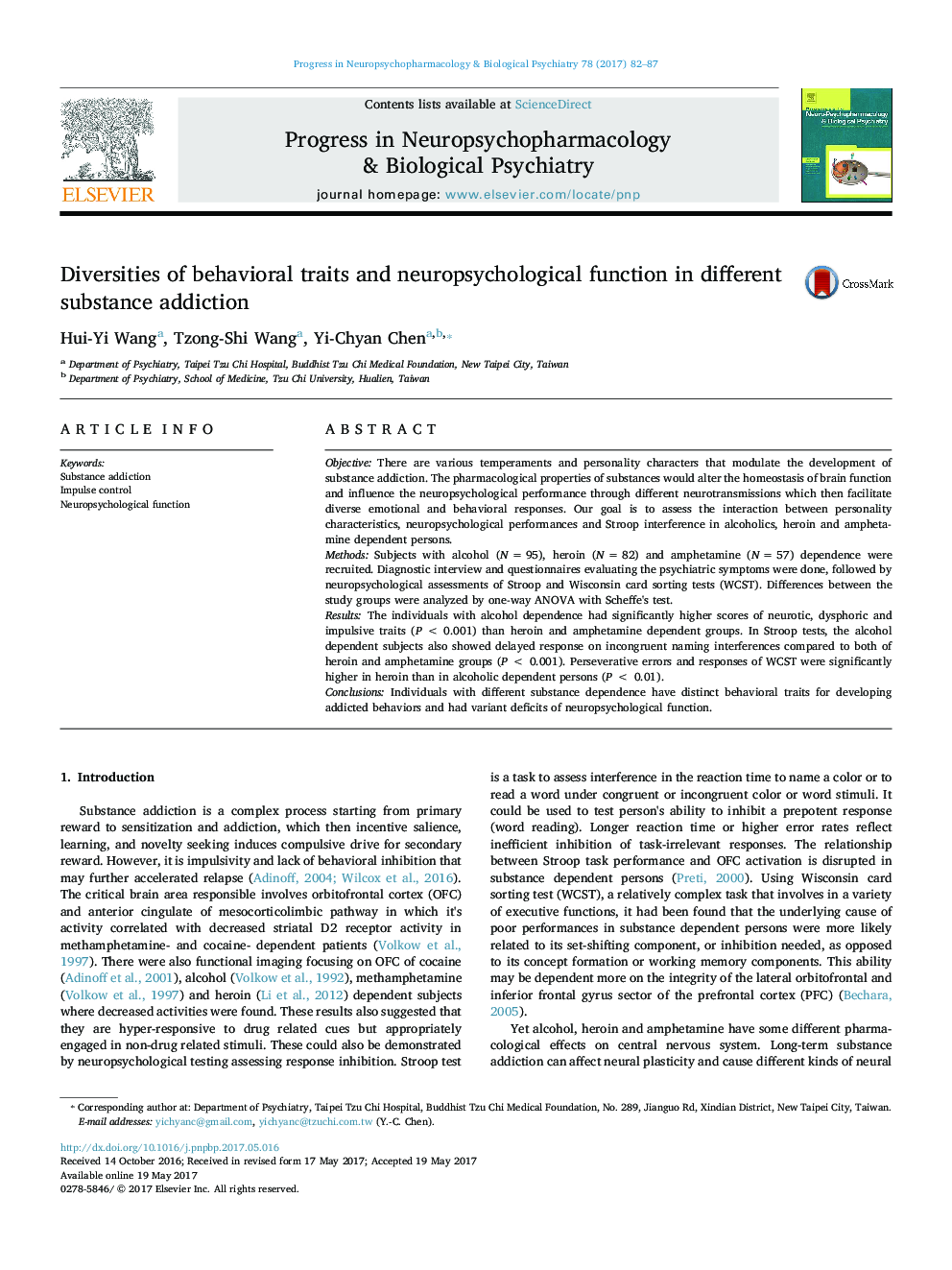| Article ID | Journal | Published Year | Pages | File Type |
|---|---|---|---|---|
| 5558024 | Progress in Neuro-Psychopharmacology and Biological Psychiatry | 2017 | 6 Pages |
â¢Individuals with different substance dependence have distinct behavioral traits.â¢Alcohol dependent persons had significantly higher scores of neurotic, dysphoric and impulsive personality traits.â¢Patients with alcohol dependence had delayed response on incongruent naming interferences.â¢Perseverative errors and responses of WCST were significantly higher in people with heroin dependence.
ObjectiveThere are various temperaments and personality characters that modulate the development of substance addiction. The pharmacological properties of substances would alter the homeostasis of brain function and influence the neuropsychological performance through different neurotransmissions which then facilitate diverse emotional and behavioral responses. Our goal is to assess the interaction between personality characteristics, neuropsychological performances and Stroop interference in alcoholics, heroin and amphetamine dependent persons.MethodsSubjects with alcohol (NÂ =Â 95), heroin (NÂ =Â 82) and amphetamine (NÂ =Â 57) dependence were recruited. Diagnostic interview and questionnaires evaluating the psychiatric symptoms were done, followed by neuropsychological assessments of Stroop and Wisconsin card sorting tests (WCST). Differences between the study groups were analyzed by one-way ANOVA with Scheffe's test.ResultsThe individuals with alcohol dependence had significantly higher scores of neurotic, dysphoric and impulsive traits (PÂ <Â 0.001) than heroin and amphetamine dependent groups. In Stroop tests, the alcohol dependent subjects also showed delayed response on incongruent naming interferences compared to both of heroin and amphetamine groups (PÂ <Â 0.001). Perseverative errors and responses of WCST were significantly higher in heroin than in alcoholic dependent persons (PÂ <Â 0.01).ConclusionsIndividuals with different substance dependence have distinct behavioral traits for developing addicted behaviors and had variant deficits of neuropsychological function.
